Good Morning from San Francisco,
Cloudflare just declared war on freeloading AI bots. The company that handles 20% of internet traffic now blocks AI crawlers by default and launched a marketplace where publishers charge per scrape.
The numbers are brutal. Google's crawler visits sites 14 times per user referral. OpenAI? 17,000 scrapes per referral. Anthropic hits 73,000.
Publishers finally have a weapon against content vampires. But success depends on AI companies actually paying instead of finding sneaky workarounds.
The internet's toll booth is open for business.
Stay curious,
Marcus Schuler
Cloudflare makes AI bots pay for web scraping access

Cloudflare just changed the game for AI web scraping. The company that handles 20% of internet traffic now blocks AI crawlers by default and lets publishers charge them for access.
The numbers tell the story. OpenAI's crawler visits sites 17,000 times for every user it sends back. Google's crawler hits just 14 times per referral. That gap explains why publishers are losing traffic while AI companies train models for free.
Major outlets like The Associated Press, Time, and Fortune signed up immediately. They can now set prices for AI companies wanting to scrape their content. Cloudflare handles the billing through a "pay-per-crawl" system.
The setup uses HTTP 402 "Payment Required" responses. AI companies must authenticate their crawlers and state their purpose. Publishers then decide whether to allow free access, charge a fee, or block entirely.
OpenAI already refused to participate, calling it an "unnecessary middleman." Other AI companies haven't committed either. This creates a standoff between publishers wanting compensation and AI firms wanting free data.
Why this matters:
- Publishers finally have leverage against AI companies that scrape without giving traffic back - potentially creating new revenue streams as search referrals decline
- Success depends on major AI players choosing to pay rather than finding workarounds, which could reshape data access across the entire AI industry
Read on, my dear:

AI Image of the Day

Prompt:
two abstract attractive women, corporate style wear, kissing in office, luxury modern meeting room, after work, hidden camera monochrome photo style
Apple Weighs Outsourcing Siri’s Brain as AI Strategy Falters
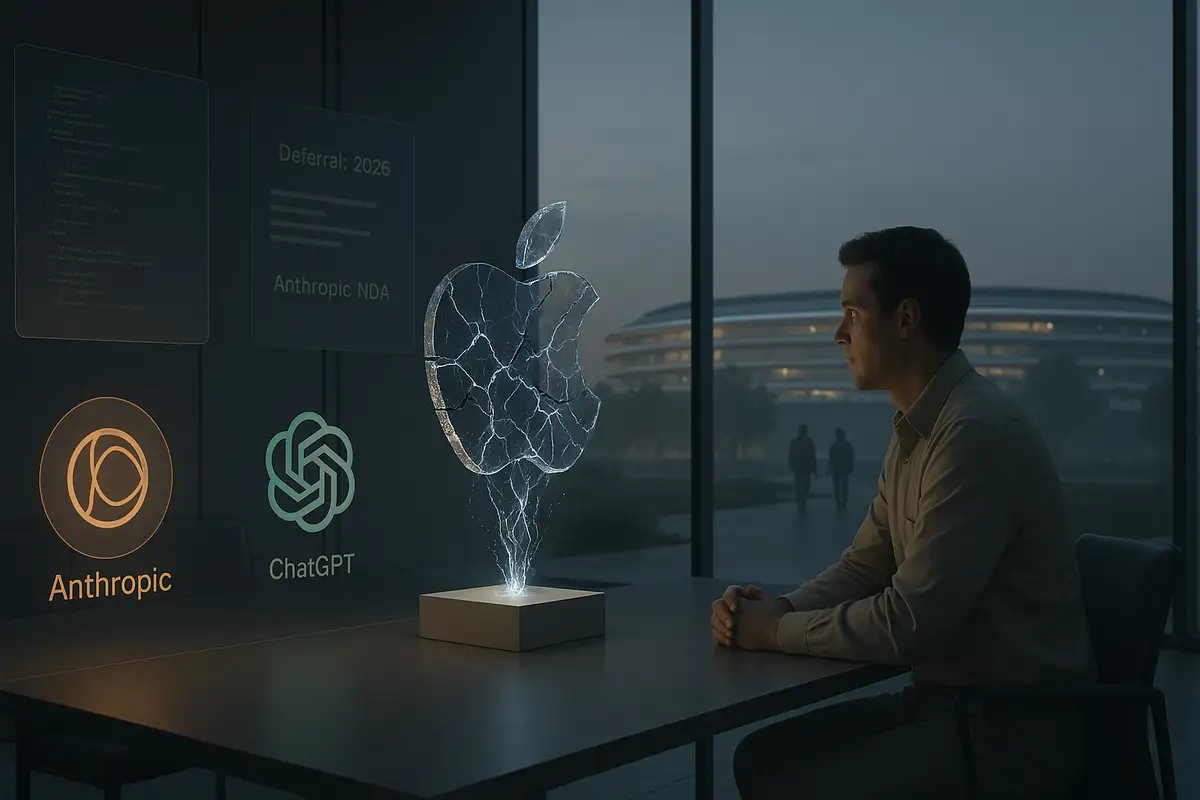
Apple is considering using AI from Anthropic or OpenAI to power Siri instead of its own technology, Bloomberg News reported Monday. The move would mark a major shift for a company that builds everything in-house.
The iPhone maker has talked with both companies about using their language models for Siri. Apple asked them to train versions that could run on Apple's cloud servers for testing. Current plans call for Apple's own models to power a new Siri in 2026.
A switch to outside technology would admit that Apple is struggling in AI. The company already lets ChatGPT answer some Siri questions, but the assistant itself runs on Apple's technology.
Siri chief Mike Rockwell and software head Craig Federighi started the project to test outside models. They took over Siri duties after AI chief John Giannandrea was sidelined following delays with Apple Intelligence features.
After multiple rounds of testing, Apple executives concluded that Anthropic's technology works best for Siri's needs. That led corporate development VP Adrian Perica to start talks with Anthropic about using Claude.
Apple and Anthropic disagree over money. The AI startup wants multibillion-dollar annual fees that increase sharply each year. The struggle to reach a deal has Apple considering OpenAI or others if it moves forward.
The proposed shift has hurt morale among Apple's AI team. Some members feel blamed for the company's AI problems and say they might leave for multimillion-dollar packages from Meta and OpenAI. Meta offers some engineers annual pay between $10 million and $40 million. Apple typically pays its AI engineers half that amount.
Why this matters:
- Apple's willingness to outsource Siri shows how far behind it has fallen in the AI race, forcing the company to abandon its vertical integration strategy.
- The talent exodus and internal problems suggest Apple's AI issues run deeper than technology—they reflect a crisis of confidence that money alone can't fix.
Read on, my dear:
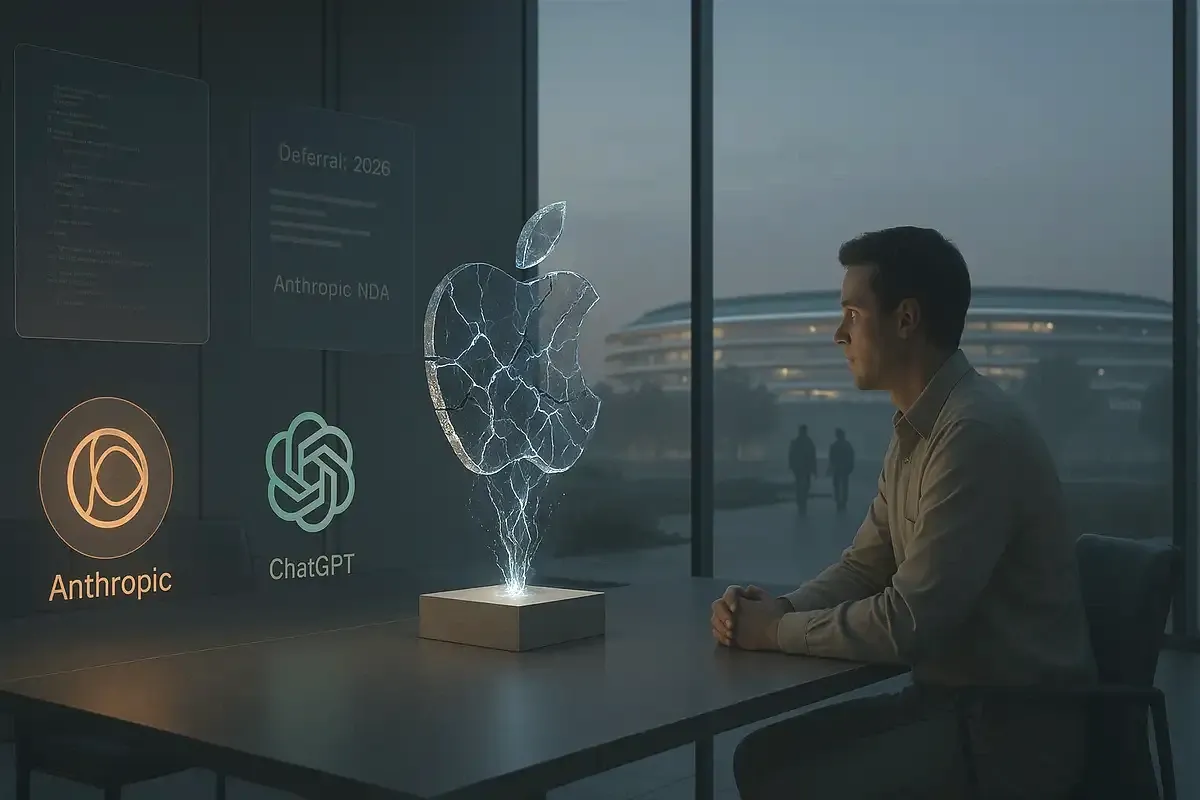
🧰 AI Toolbox
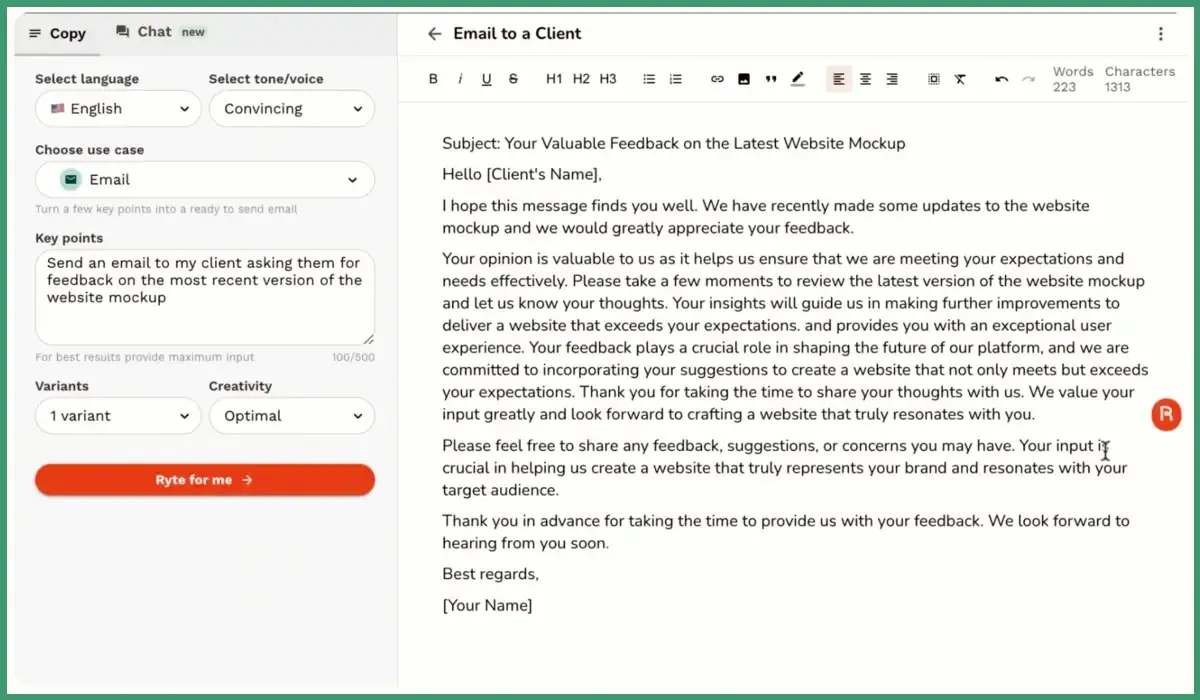
How to Write High-Quality Marketing Copy in Seconds
Rytr creates marketing copy for emails, ads, and social media posts in seconds. You pick what type of content you need, describe your product, and it writes multiple versions. The AI can match different tones from casual to professional.
Tutorial:
- Sign up for a Rytr account
- Select what you need like "Landing Page Copy" or "Email"
- Choose your tone like "Convincing" or "Enthusiastic"
- Enter details about your product or service
- Click "Ryte for me" to generate the copy
- Edit and improve the generated text as needed
- Copy the final text to use in your campaign
Sample Prompt: Write a landing page headline for a new AI-powered writing assistant.
URL: https://rytr.me/
AI & Tech News
Senate kills Silicon Valley's AI regulation freeze in 99-1 vote
The Senate voted 99-1 to strip language from Trump's tax bill that would have blocked states from regulating artificial intelligence, dealing a crushing defeat to major tech companies and White House advisers who pushed the measure. Senator Marsha Blackburn led the charge against the provision, arguing it would undermine Tennessee's Elvis Act protecting musicians from AI voice cloning.
Apple can't escape antitrust lawsuit over iPhone dominance
A federal judge denied Apple's attempt to dismiss the Justice Department's lawsuit accusing the company of illegally dominating the smartphone market through restrictions on app developers and competing devices. The decision sets up what could be a years-long legal battle over Apple's $201 billion iPhone business, proving that even the world's most valuable company can't simply swipe away antitrust allegations.
Zuckerberg renames AI team, declares superintelligence victory lap incoming
Mark Zuckerberg restructured Meta's AI efforts under a new group called Meta Superintelligence Labs, led by Scale AI's former CEO Alexandr Wang, while promising to spend "hundreds of billions" developing AI systems that outperform humans. The Facebook founder also poached 11 researchers from OpenAI, Anthropic, and Google, apparently believing that superintelligence is "coming into sight" and Meta should lead humanity into this new era.
US busts North Korean remote work scam that funded nuclear weapons
The Justice Department shut down a scheme where North Korean IT workers used fake identities and laptop farms across 14 states to land remote jobs at over 100 US tech companies, funneling $5 million to their regime's nuclear program. The FBI seized 137 laptops from the operation, which proves that even dictatorships have mastered the art of working from home.
Huawei gives away AI models to sell more chips
Huawei open-sourced two AI models from its Pangu series, hoping developers will bite on its homegrown chip ecosystem. The strategy is simple: give away the software to sell the hardware—especially when US restrictions mean you can't buy the good chips anymore.
Google tells EU: Your tech rules are breaking the internet
Google warned EU regulators that landmark tech rules designed to curb its power are actually making online experiences worse for Europeans. The company says users now pay more for travel tickets and airlines report losing 30% of direct bookings thanks to clunky workarounds required by the Digital Markets Act.
AI agents ditch the small talk, start doing actual work
AI systems moved past answering questions to actually completing work autonomously—Novo Nordisk cut clinical report time from 10 weeks to 10 minutes, while Anthropic's own coding tool wrote 90% of itself. Scott White, who builds software features despite not being a programmer, says AI transformed from a novelty into a true work partner that can pursue goals independently using multiple tools.
WordPress founder nukes rival, loses own employees in friendly fire
Matt Mullenweg cut off rival hosting company WP Engine from core WordPress services in a dispute over open source contributions, sparking legal battles costing millions monthly and prompting enough employee departures that he offered buyouts to clear the air. The WordPress creator now regrets publicly saying he personally owns WordPress.org—a quote that became the rallying cry for critics who see his actions as proof that open source projects remain vulnerable to the whims of their founders.
Procurement software duo strikes gold again with $55M funding round
Levelpath raised $55 million in Series B funding led by Battery Ventures, banking on founders Stan Garber and Alex Yakubovich who previously sold procurement startup Scout RFP to Workday for $540 million. The startup aims to quadruple revenue this year by making procurement software that employees actually want to use instead of avoiding with corporate credit card workarounds.
Cruz bill threatens to slow your Wi-Fi so carriers can hoard spectrum they don't need
Senator Ted Cruz's budget reconciliation bill removes protection for 6 GHz spectrum from planned auctions, potentially taking frequencies away from Wi-Fi and giving them to mobile carriers like AT&T and Verizon. The carriers claim they desperately need more spectrum even though their own executives recently told investors they have "no pressing need" for new frequencies and "almost unlimited spectrum."
Better prompting:
Today: Create a logo for a coffee shop
Create a logo for Bean & Branch, a sustainable coffee shop that sources fair-trade beans and hosts community events.
Design requirements:
- Include a coffee cup and natural element (leaf, tree, or branch)
- Use earth tones with one accent color
- Make it readable at small sizes for social media and stamps
- Design works in both color and black/white versions
Brand personality:
- Welcoming neighborhood spot, not corporate chain
- Environmentally conscious but not preachy
- Connects people over quality coffee
Avoid:
- Overly complex details that disappear when small
- Cliché coffee beans or generic leaves
- Corporate or sterile feeling
Deliverables:
- Primary logo with text
- Icon-only version for social media
- Horizontal layout for signage
Desktop App Turns Command-Line AI Into Something Your Boss Could Use
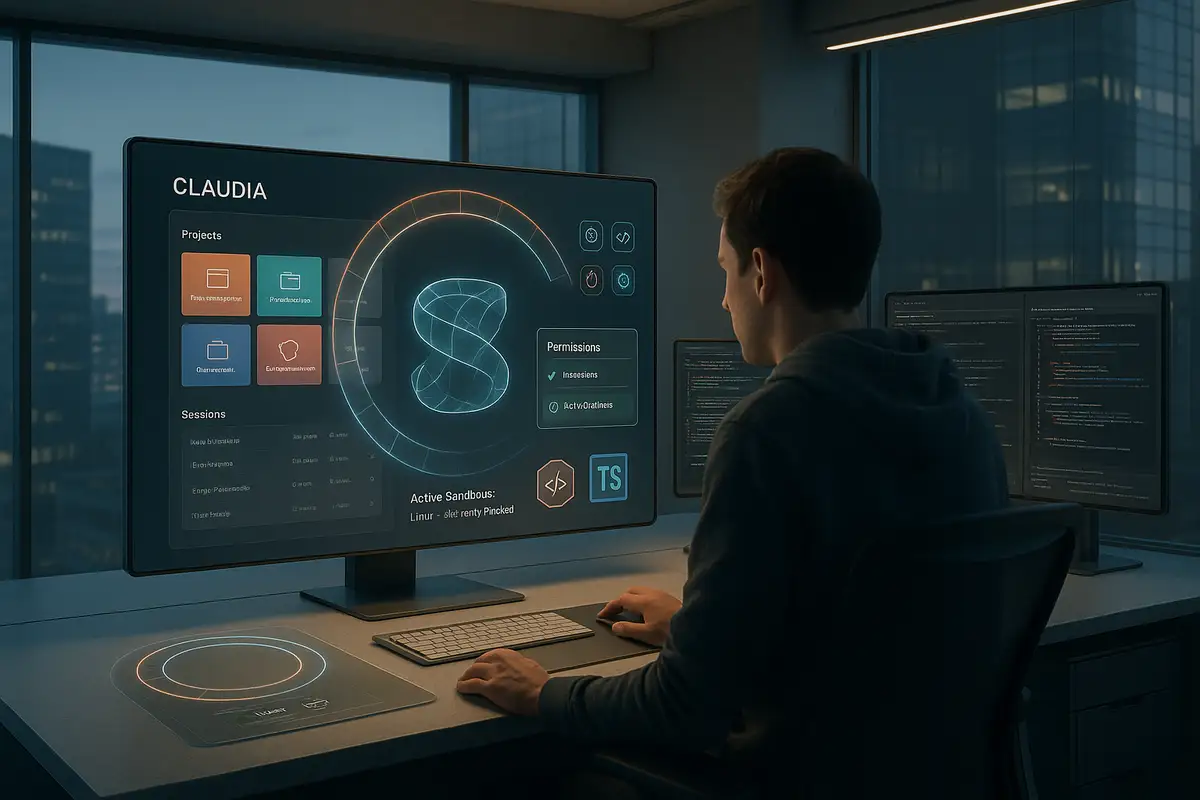
Claude Code works well, but many developers avoid it because terminals feel intimidating. Claudia fixes this problem by wrapping Claude Code in a clean desktop interface that runs on Windows, macOS, and Linux.
The tool automatically finds your existing Claude Code projects and displays them visually. You can browse sessions, search instantly, and resume past work without digging through command history. The smart dashboard tracks API usage and costs in real-time, showing exactly how much each project spends.
Claudia's best feature is custom agents. You create specialized AI assistants for specific tasks—one for TypeScript refactoring, another for unit testing, a third for security scanning. Each agent runs in a sandboxed environment with controlled permissions. On Linux, it uses seccomp isolation. macOS gets sandbox protection.
The timeline feature works like version control for AI sessions. You can create checkpoints, jump back to earlier versions, or fork sessions with one click. A diff viewer shows exactly what changed between saves.
Installation requires building from source, which needs technical skills. You must install Bun and Rust, then compile everything yourself. No prebuilt downloads exist yet.
Why this matters:
- Visual interfaces could make AI coding mainstream—Claudia proves open-source tools can match enterprise polish without the enterprise price tag
- Custom agents with sandbox security might become the standard way teams deploy AI assistants across different workflows
Read on, my dear:
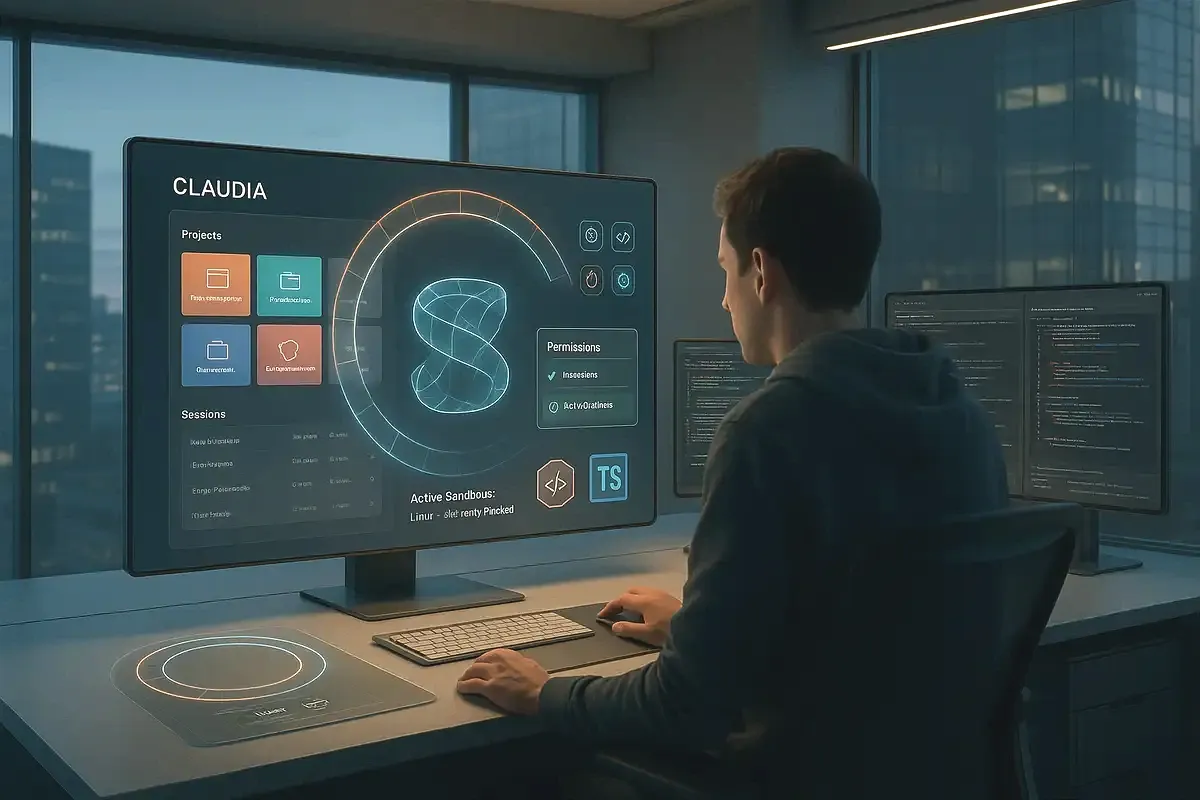
🚀 AI Profiles: The Companies Defining Tomorrow
Cohere
Cohere builds enterprise language models that actually work in business settings. The Toronto startup turns AI research into tools companies can deploy without breaking their workflows.
The Founders
Founded 2019 by three Google Brain alumni: CEO Aidan Gomez (co-author of the famous "Attention Is All You Need" Transformer paper), Nick Frosst, and Ivan Zhang. ~500 employees. Born from frustration that cutting-edge AI stayed locked in research labs while enterprises struggled with basic language tasks.
The Product
Enterprise-grade LLMs via API. Core strengths: writing, summarization, search, content moderation, and retrieval-augmented generation (RAG) that lets AI cite your private docs. Cloud-agnostic—runs on AWS, Azure, Google Cloud, or your own servers. Built for business integration, not chatbot demos. 📊
The Competition
Battling OpenAI ($90B valuation), Anthropic ($20B), Google Cloud AI, and Mistral. Cohere carved out the "enterprise-first" niche while others chased consumer buzz. Strategic wins: embedded in Oracle and Salesforce platforms, partnerships with McKinsey, RBC, and governments.
Financing
Nearly $1B raised total. Latest round: $500M at $5.5B valuation (July 2024) from PSP Investments, Cisco, Nvidia, Oracle, AMD. Backed by AI royalty including Geoffrey Hinton. May seek $6.5B+ next round.
The Future ⭐⭐⭐⭐
Strong positioning in the enterprise sweet spot while others fight consumer wars. Faces copyright lawsuits and fierce competition from better-funded rivals. But focused execution and blue-chip partnerships give Cohere real staying power. The company that makes AI boring enough for the boardroom might just win the enterprise game. 🎯










